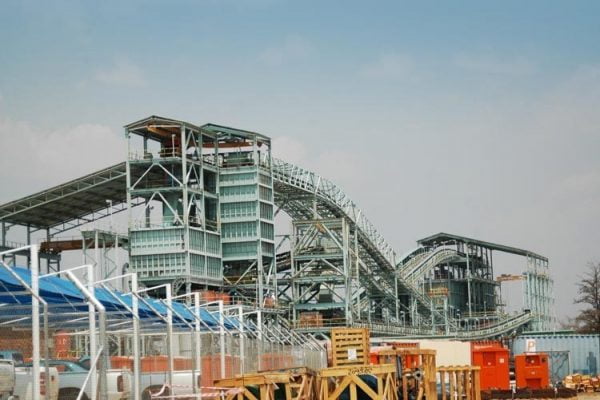In under two years’ time, Zimplats will hit a key milestone on the long path to local beneficiation; it will no longer have to send platinum concentrates to South Africa for smelting.
The company has laid out a US$1.8 billion expansion plan, part of which involves expanding processing capacity in Zimbabwe. Smelting more platinum locally is a step towards staving off a government tax on the export of unprocessed platinum.
The company is investing US$521 million to expand smelter capacity, which will be fed by new mines and redevelopment. The first platinum matte is scheduled from January 2024 while the acid plant commissioning is expected in August 2024, according to Nico Muller, CEO of Zimplats’ holding company Implats.
A new concentrator – which turns ore into the raw materials for platinum extraction – will be completed this year. Zimplats currently has two concentrators at Ngezi and Selous.
“Construction of a third concentrator is well advanced, and we are very confident of commissioning that concentrator before September this year, and the commissioning of all the infrastructure for increasing production is similarly – it happens over a longer time period – on track and on schedule,” Muller told an investor call on Tuesday.
While Zimplats exports platinum mattes, Mimosa, in which Implats has a 50-50 share with Sibanye Stillwater, ships its concentrates to South Africa for smelting. The new capacity being built now will see all smelting – from Zimplats, Mimosa and possibly other producers – being done locally.
“What that will do is give us an opportunity to smelt Zimplats as well as Mimosa concentrate in Zimbabwe, and therefore qualify us for a dispensation against the export levies for unbeneficiated concentrate,” Muller said.
“We will be independent in Zimbabwe from the South African operations. It does then, obviously, with the removal of the Mimosa concentrates from our Rustenberg furnaces, create headroom in Rusternberg.”
According to Gerhard Potgieter, Implats Chief Operating Officer, Zimbabwe is a key asset for Implats and expanding smelting capacity makes sense.
He said: “One of the reasons why we have agreed to increase that capacity in Zimbabwe is that Zimbabwe is our playground, we know how to mine there, we know how to make money there. So, it just makes sense for us to also beneficiate there.”
Amplat’s Unki launched a US$60 million smelter in 2019 and has invested a further US$40 million to expand capacity there, which will increase output by 30%.

____
Good, but not yet good enough
However, a base metal refinery (BMR), which comes at the end of the production chain, is still what government sees as the ultimate prize in its push for local beneficiation.
Government, in its policy document NDS1, insists that “moving up the value chain will ensure Zimbabwe benefits more from the PGMs through job creation and foreign currency earnings”. It says a penalty tax is necessary “to dissuade exportation of concentrates and matte and ensure adherence to set timelines for the establishment of the BMR”.
Industry players say there is not enough output yet to justify the investment in Zimbabwe.
In a letter to Treasury in January, Alex Mhembere, CEO of Zimplats and head of the platinum producers association, asked government to further postpone the tax on unprocessed platinum. He said a report commissioned by platinum producers has recommended that miners build a combined base metal refinery.
“The BMR project will have capacity to accommodate local PGM base metal refining,” he wrote.

Countries in the region have been involved in similar battles for local beneficiation, and some have had to offer generous tax breaks to make it happen.
In 1997, Mozambique agreed with Mozal Aluminium on the building of a smelter by offering the company a 50-year tax holiday. The concession means the company, 72%-owned by BHP spin-off South32, is paying 1% turnover tax. Mozal also gets power at a discounted rate.
In Namibia, zinc refinery projects in the south of the country rose after they were granted export processing zones status, exempting them from company tax.
.png)




